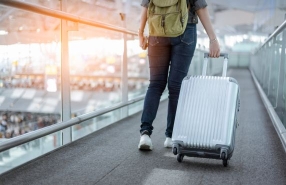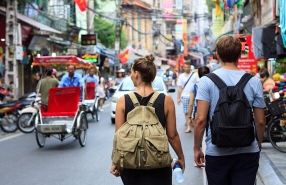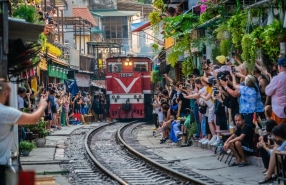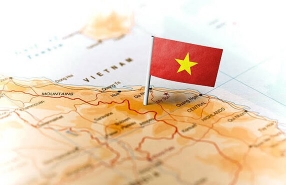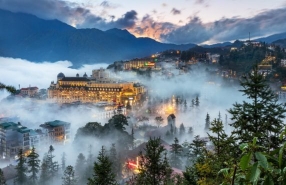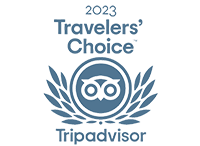What To Visit In Champasak? Discover Khone Phapheng Falls, A Must-see Waterfall Laos

If you're wondering what to visit in Champasak during your trip to Laos, look no further than the stunning Khone Phapheng Falls, a must-see waterfall in Champasak. Located in southern Laos, this impressive cascade, often called the "Niagara of Asia," is a true natural wonder. As one of Champasak's most popular attractions, it draws travelers from all around the globe. Discover the Khone Phapheng Falls with Autour Asia, Laos Travel Agent, an iconic site in Champasak, perfect for an exciting adventure or a relaxing getaway.
Table of Contents
- I. The Epic History of Khone Phapheng Falls
- II. Everything You Need to Know About Khone Phapheng Falls, a must-see Champasak waterfall
- III. Why Are Khone Falls So Fascinating?
- IV. The Best Time to Visit Khone Phapheng Falls
- V. What You Need to Know Before Visiting
- VI. How to Get to Khone Phapheng Falls ?
I. The Epic History of Khone Phapheng Falls
Before we understand why Khone Phapheng Falls, a beautiful Champasak Waterfall, is an ideal answer to the question “What to visit in Champasak ?” Let us introduce you to its fascinating history.
In the 19th century, Laos fell under French Indochina's rule. The French colonizers harbored ambitions of conquering all of Indochina, using the Mekong River as a primary transportation route to invade Cambodia, Laos, and Vietnam. However, their plans to establish a route from Indochina to the sea via the Mekong were thwarted by the formidable power of Khone Phapheng Falls.
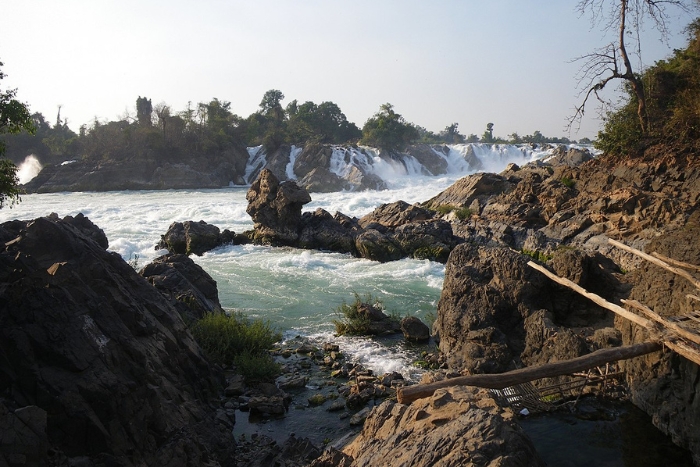
To overcome this major obstacle, the French built an iron bridge and a railway connecting the islands of Don Det and Don Khone. Today, this access is defunct, with no trains running on the old tracks. In addition to the Khone Phapheng Falls, you can still see at Si Phan Don, the remnants of an old locomotive, a testament to the colonial-era railway.
Maybe you also want to know about: What to do in Si Phan Don ?
What to visit in Champasak ? Khone Phapheng Falls is considered a natural "barrier" that resisted the ambitions of the French colonizers. The enormous rocky rapids extending over miles cause the water to swirl and narrow, creating deep canyons that hindered the French colonialists' efforts. Even the sturdiest ships could not navigate the "battlefield" of Khone Phapheng Falls.
II. Everything You Need to Know About Khone Phapheng Falls, a must-see Champasak waterfall
Khone Phapheng Falls, or simply Khone Falls, is located on the Mekong River in Champasak Province, southern Laos, near the Cambodian border. Situated on Don Khone Island, these falls are the largest in Southeast Asia and are often called the Niagara of Asia due to their impressive power and flow.
This Champasak waterfall stands 21 meters high and stretches 21 kilometers long, with rapids extending over 10 kilometers along the Mekong River. With a width of more than 10 kilometers, Khone Phapheng Falls is considered the most majestic in Southeast Asia.
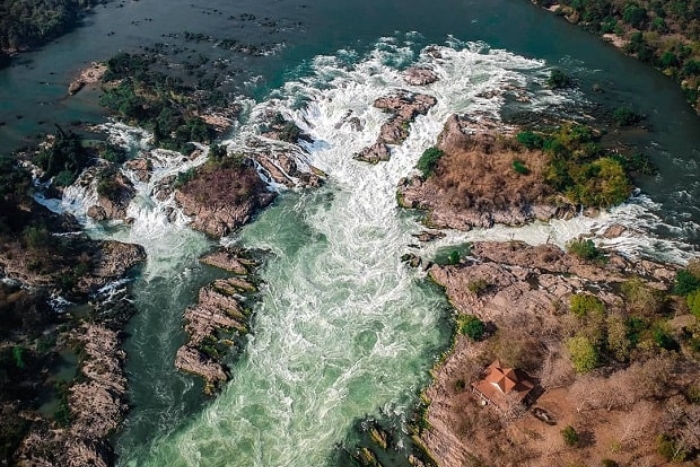
The average flow rate of Khone Falls is about 11,000 cubic meters per second, reaching up to 50,000 cubic meters per second during the rainy season. Over a distance of 10 to 13 kilometers, the falls tumble over sharp rocks, creating an awe-inspiring spectacle.
If you are wondering what to visit in Champasak, don't miss Khone Phapheng Falls, one of the most beautiful waterfalls in the area. It is also a great suggestion to explore other Champasak waterfalls. The falls area includes many small islands and channels, collectively known as Si Phan Don (meaning "4,000 Islands"), with two main parts: Khone Phapheng Falls and Somphamit Falls.
Quick Look: Somphamit Falls
III. Why Are Khone Falls So Fascinating?
1. Khone Phapheng Falls - The "Falls of Smoke"
What to visit in Champasak ? Renowned for their impressive flow and power, Khone Phapheng Falls captivate visitors with their majestic beauty and are often referred to as the "Falls of Smoke". This nickname is particularly fitting during the rainy season.
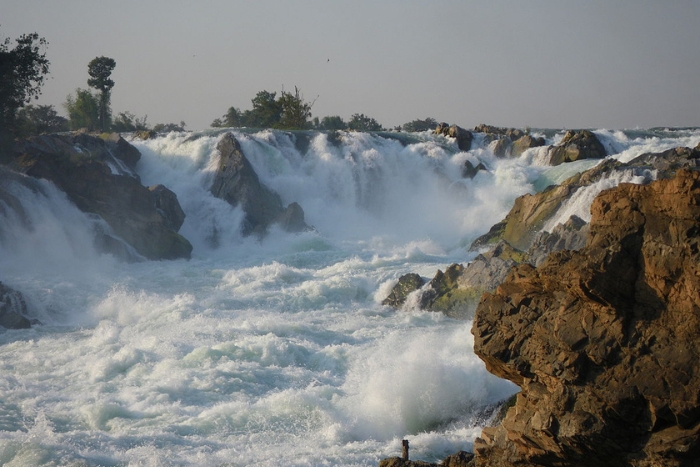
The Mekong River rushes over huge blocks of limestone, creating a series of white cascades. During the rainy season, the spectacular fall of these roaring waters through the massive rapids creates a misty, smoke-like veil in the sky. This sight leaves a memorable impression on everyone fortunate enough to visit Khone Phapheng Falls.
2. Khone Phapheng Falls - A Habitat for Rare Fish Species
In addition to their stunning beauty, Khone Phapheng Falls are home to many rare and endangered fish species, such as the giant catfish, the world's largest freshwater fish. Not far from this Champasak waterfall, you might spot the Irrawaddy river dolphins, an endemic species of the Mekong.
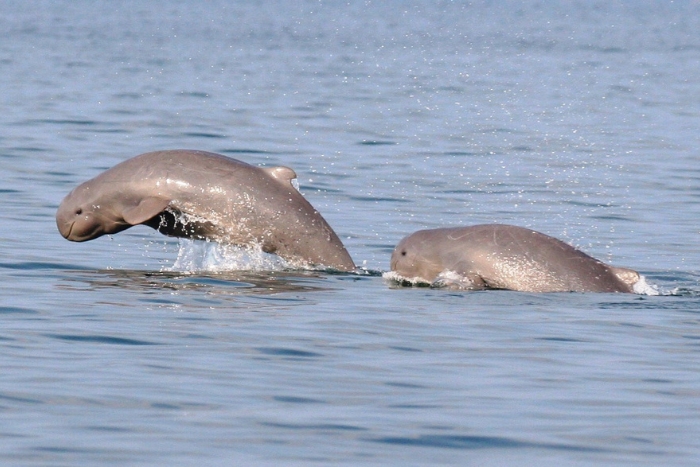
What to visit in Champasak ? Khone Falls also provide an abundant fish resource for local inhabitants. You can watch fishing activities or embark on an adventure by renting a canoe to see the freshwater dolphins play in the waves, or simply relax on the rocks while admiring the falls.
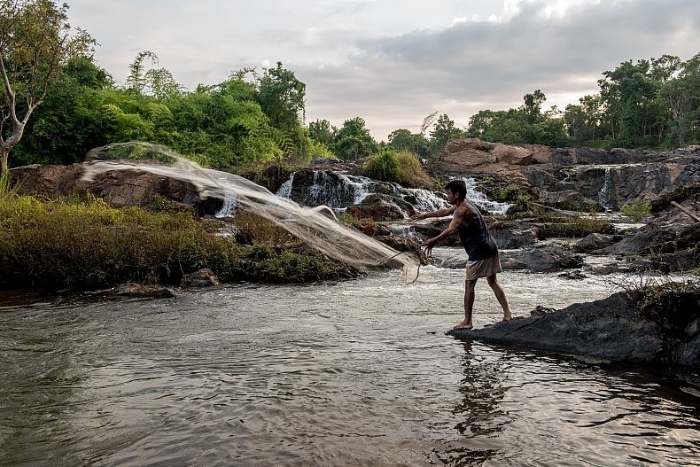
3. The Sacred Manikhoth Tree: A Mystery at the Heart of the Falls
Visiting Khone Phapheng Falls promises you a discovery of cascading mysteries. If you are fascinated by riddles, don't miss the Sacred Manikhoth Tree, displayed in the museum located near the Khone Phapheng Falls!"
In southern Laos, a "sacred tree" grows upside down right in the middle of Khone Phapheng Falls. Its roots reach skyward while its leaves fall toward the ground. This unique tree stands in the midst of the most powerful rapids, and every day, two groups of black or white birds perch on its branches. No one knows how long the Manikhoth tree has existed, but it is deeply revered by the locals.
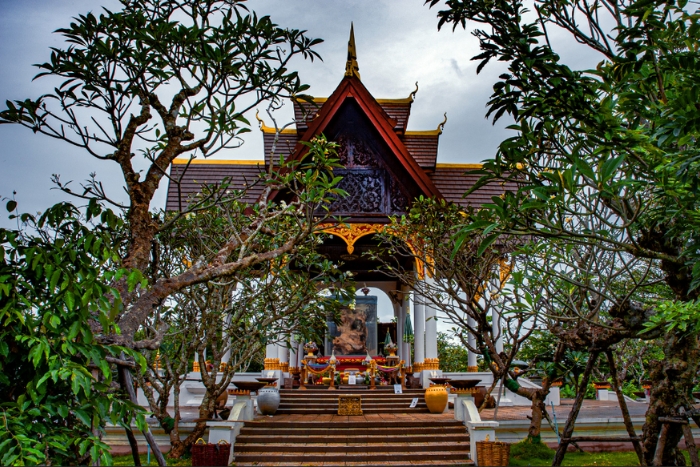
What to visit in Champasak ? At the Khone Phapheng Falls tourist site, part of the sacred tree, known as Manikhoth, is preserved in a transparent glass case. In front of it, an altar allows Laotians and visitors to burn candles, offer incense, and place flowers. To the right of the sacred tree sanctuary, an English plaque reads: "Manikhoth is a sacred tree, unique in the world, associated with Khone Phapheng Falls. Manikhoth has a unique appearance with 'roots pointing to the sky, top pointing to the ground,' branches pointing east, north, west, and south. For nearly 2,000 years, the Mekong has flowed, hitting the rocks and roots of Manikhoth, but the tree remains standing in the middle of the river.
Laotians have deep faith in Manikhoth, especially the Si Phan Don locals living in Muang Khong. They believe that Manikhoth is a sacred tree capable of giving life and death. During the Buddha Festival, from October to March, white ibises fly around Manikhoth, often making three circles before landing on its branches or nearby trees. This symbolizes prayer and respect for Buddha.
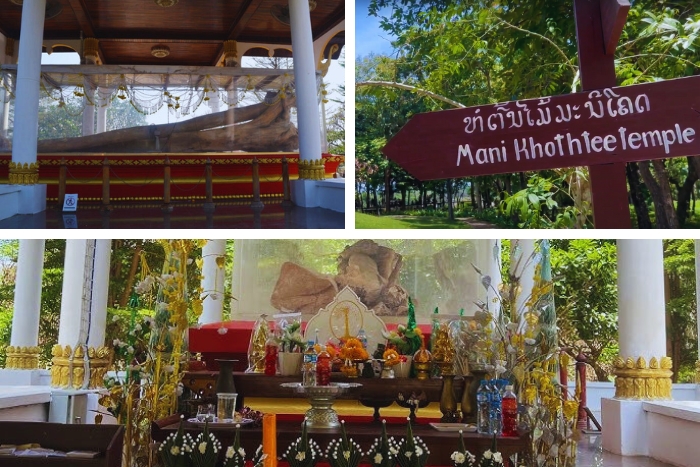
It is said that only high-ranking individuals can see Manikhoth. This sacred tree bears three types of fruits, each with different effects: eating the fruit pointing north turns one into a bird, the south fruit into a monkey, and the east fruit grants eternal youth with an angelic appearance.
The Sacred Manikhoth Tree died at midnight on March 19, 2012, for unknown reasons. Due to the strong Mekong current, it could not be removed from the water. It wasn't until January 13, 2013, after several attempts, that Manikhoth was finally safely retrieved by helicopter and displayed at the Khone Phapheng Falls Museum. Every January, a festival in honor of Manikhoth takes place, featuring offerings of white flowers as a sign of prayer and devotion."
While the Manikhoth tree is unique and no longer present, many old trees continue to grow among the rocks of Khone Phapheng Falls. They offer cool shade, and their rugged roots cling firmly to the rocky ledges.
See more: Transportation in Laos
IV. The Best Time to Visit Khone Phapheng Falls
The ideal time to visit Khone Falls is from November to March. During this season, the weather is dry and pleasant with minimal rain, perfect for traveling and outdoor activities like hiking.
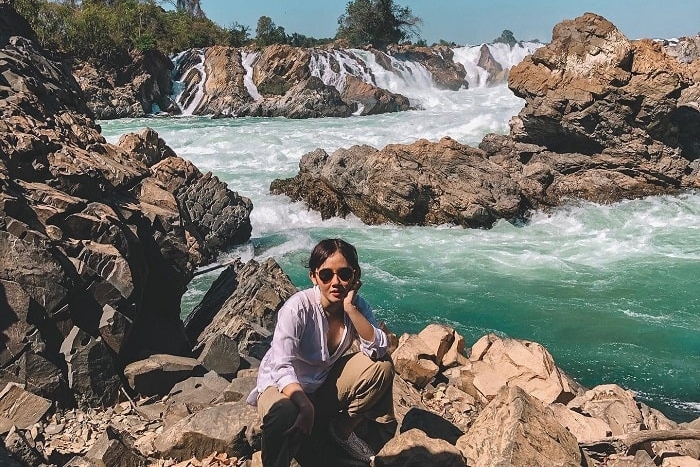
If you visit this Champasak waterfall during the summer (March to May), you'll have to endure high temperatures. The rest of the year is marked by sudden and sometimes heavy rains, which can raise river and lake levels. However, this season allows you to witness the spectacular "Falls of Smoke" created by the falls during the rainy season.
No matter when you decide to visit Khone Phapheng Falls, be sure to check the weather forecast before you go to avoid any adverse conditions that might spoil your experience.
V. What You Need to Know Before Visiting
Consider visiting Khone Phapheng Falls in the morning. It’s the best time to enjoy an extended visit and appreciate the afternoon sun's reflections on this Champasak waterfall.
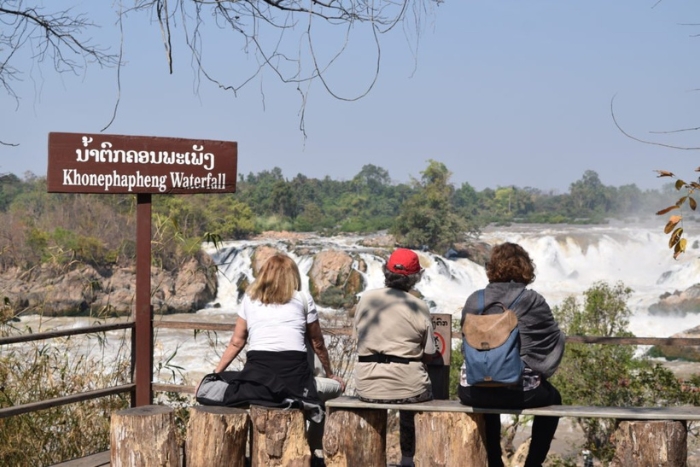
Swimming is prohibited due to the powerful currents of Khone Phapheng Falls.
For breathtaking views, head to the nearby viewpoint, which features a small, secure pavilion where you can take photos of the falls and the surrounding islands. You'll get a stunning vantage point of Khone Falls. There are also several souvenir shops, restaurants, and cafes in the vicinity.
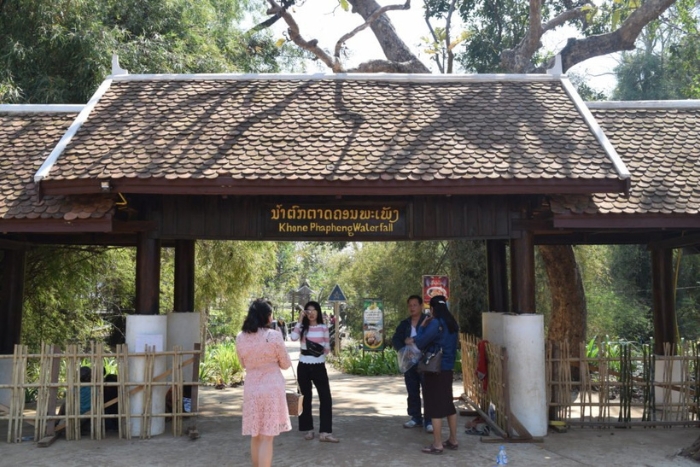
Tickets, valid for the day, can be purchased at the ticket office located at the main entrance of the site.
Price: 2.24€ (~ 55.000 LAK for foreign visitors); 0.81€ (~20.000 for locals)
Opening Hours: Daily from 8:00 AM to 5:00 PM
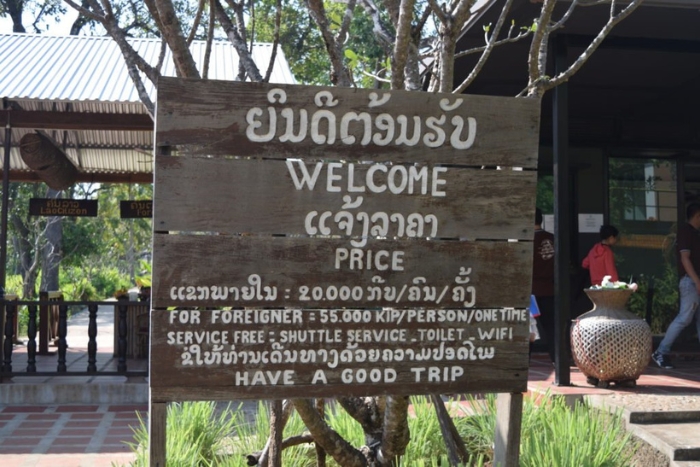
VI. How to Get to Khone Phapheng Falls ?
From Pakse, drive 150 km south on Route 13 to reach the site, just 13 km from the Cambodian border. You can reach Khone Falls by minibus or car, or arrange a guided tour. Alternatively, explore the island of Don Khone by bike. You can rent a standard or mountain bike for 0,41€ to 0,81€ (10,000 - 20,000 LAK) per day.
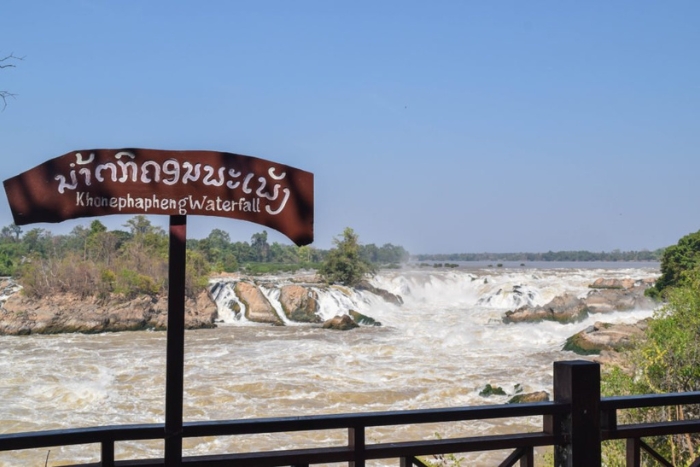
What to visit in Champasak ? Khone Phapheng Falls is undeniably a must-see destination during your stay in southern Laos. With their impressive power and spectacular beauty, they showcase the grandeur of nature and the fascinating history of Laos. Whether you’re drawn to the majesty of the "Falls of Smoke" or the mysterious secrets of the Sacred Manikhoth tree, Khone Phapheng offers an unforgettable experience. Embark with AUTOUR ASIA, Laos tour agency, for an unforgettable adventure in this natural gem of Laos and let yourself be enchanted by the magic of Khone Phapheng Falls.
Explore further:
> Massages And Spas In Champasak
> Champasak Travel Guide
> Laos Tour 3 Weeks
> Laos Packages Tours
The best way to see Wat Phou on a day trip is by motorbike, which can be rented in Pakse from 2,44€ (~60 000 LAK) per day. Alternatively, you could visit the temple complex as part of a tour, which is offered all over Pakse.
For more information about the Champasak temple, you can read: Best Temples In Champasak Town
To fully rest and enjoy the attractions of the area, we recommend you to spend 2 or 3 days in the 4000 Islands. If you would like to check out Laos tours, please visit our Laos Packages Tours. If you have any further questions, please contact us AUTOUR ASIA, Laos tour agency
Related travel guide
Other similar articles
CUSTOMIZABLE BY LOCAL EXPERTS
Personalized trip at the original price!
REFUND GUARANTEE
We believe in our work and promise to give you money back.
GOOD PRICE / QUALITY
95% satisfied more than expected!
24/7 LOCAL SUPPORT
We are always available online to provide assistance at any time.
Most read articles
Autour Asia is highly recommended on
Embracing the mission of "Satisfied more than expected" and providing authentic experiences, we have received numerous recommendations on reputable travel forums:












